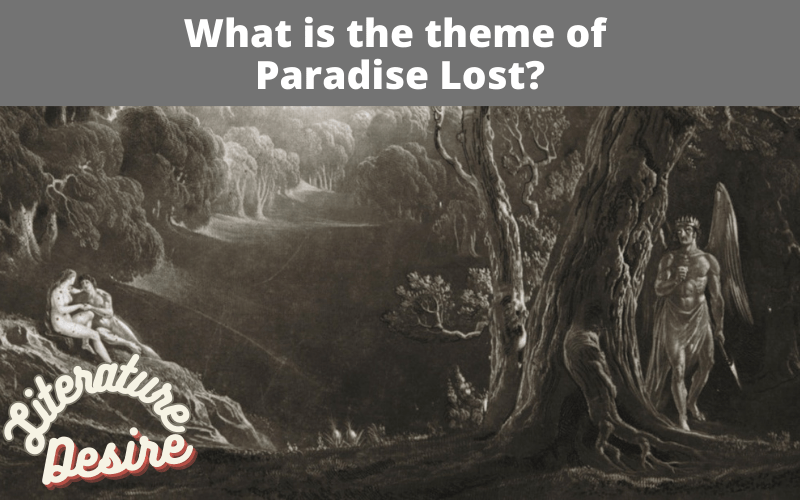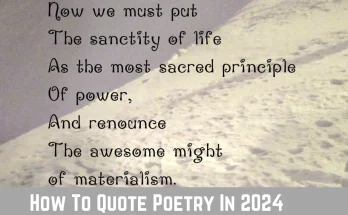Paradise Lost, a masterpiece written by the famous English poet John Milton, is an influential epic poem that explores the profound themes of religion, morality, and the human condition. Paradise Lost was published in 1667, and the poem is divided into twelve books and lengths over ten thousand lines.
It serves as an exploration of the fall of man, a description of Hell, drawing heavily from biblical narratives and classical mythology. In this article, we will dive into the subject matter of Paradise Lost and unravel its captivating layers.
What is the theme of Paradise Lost?
The Epic Poem’s Historical Context
Paradise Lost is situated in a specific historical context that significantly influenced its subject matter and themes.
Understanding the time period in which it was written provides valuable insights into the poem’s intentions and significance.
Milton’s Inspiration and Influences
To comprehend the subject of Paradise Lost, it is crucial to delve into the inspirations and influences that shaped Milton’s literary masterpiece.
From religious beliefs to classical mythology, various elements contributed to the creation of this epic work.
The Biblical Subject Matter
At its core, Paradise Lost discovers the biblical story of the fall of man, as described in the book of Genesis.
Milton investigates deep into the biblical narrative, shedding light on Adam and Eve’s disobedience, the temptation of the traitor, and the consequences of their actions.
What is the theme of Paradise Lost?
Paradise Lost is a treasure trove of themes that resonate with readers across generations. Let’s explore some of the key themes addressed in this remarkable poem.
The Nature of Good and Evil
One of the central themes in Paradise Lost is the exploration of the nature of good and evil. Milton delves into the complexities of these concepts, challenging traditional notions and provoking thought and contemplation.
The Power of Free Will: What is the theme of Paradise Lost?
Another crucial theme explored in Paradise Lost is the power of free will. Through the characters of Adam and Eve, Milton raises questions about the consequences of exercising free will and the moral responsibility associated with it.
The Fallibility of Humans
Milton portrays the fallibility of human beings in Paradise Lost, emphasizing their susceptibility to temptation and the inevitability of making mistakes. This theme highlights the human condition and the perpetual struggle between right and wrong.
The Role of Satan
The character of Satan is a compelling figure in Paradise Lost. Milton delves into Satan’s motivations, his pride, and his rebellion against God, exploring the complexities of this fallen angel.
Literary Devices Employed by Milton
Milton’s skillful use of literary devices adds depth and richness to Paradise Lost. These devices captivate readers and enhance the overall reading experience. Let’s examine some of the key literary devices employed in this epic poem.
Epic Similes: What is the theme of Paradise Lost?
Milton utilizes epic similes throughout Paradise Lost, drawing comparisons between grandiose and mundane subjects, heightening the poem’s imagery and impact.
Allusions to Classical Mythology
Classical mythology plays a significant role in Paradise Lost, as Milton references various mythological figures and tales to enhance his narrative and provide additional layers of meaning.
Foreshadowing and Symbolism
Foreshadowing and symbolism are skillfully employed by Milton in Paradise Lost. These devices create a sense of anticipation, deepen the themes, and add a layer of complexity to the poem.
Conclusion: What is the theme of Paradise Lost?
Paradise Lost positions as a literary masterpiece that endures to captivate readers for centuries after its publication. Through its investigation of the fall of man, complex characters, and philosophical themes, Milton’s epic poem challenges our understanding of morality, free will, and the human condition.
By probing into the subject of Paradise Lost, we board on a journey that unties the depths of human existence and the eternal struggle between good and evil.
Frequently Asked Questions (FAQs)
The main emphasis of Paradise Lost is the fall of man and the penalties of Adam and Eve’s disobedience in the Garden of Eden. It discovers themes of good and evil, free will, and the human condition.
Paradise Lost holds immense significance in literature due to its exploration of profound philosophical and theological themes. It has had a profound influence on subsequent works, shaping the literary landscape for centuries.
Paradise Lost challenged traditional religious beliefs and prompted new interpretations of biblical narratives. It encouraged readers to question established dogma and fostered debates regarding the nature of God, free will, and the human condition.
Satan serves as a central character in Paradise Lost. Milton represents him as a complex figure, showing his rebellion against God, his pride, and his manipulative nature. Satan’s character questions about the nature of evil and the parameters of human understanding.
Paradise Lost explores the theme of redemption through the character of Jesus Christ. The poem suggests that redemption is possible through repentance and acceptance of divine grace, providing hope and solace to readers.
Paradise Lost’s dense language and complex themes can present challenges to readers. However, with patience, perseverance, and a willingness to involve with the text, its insightful beauty can be respected by both scholars and casual readers.



